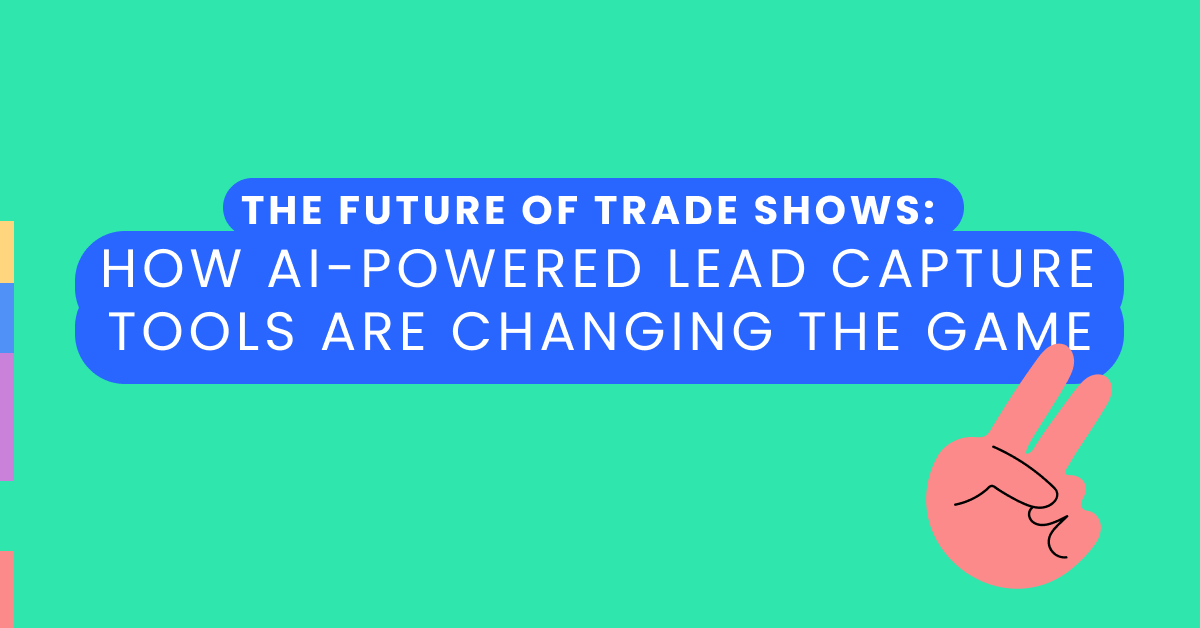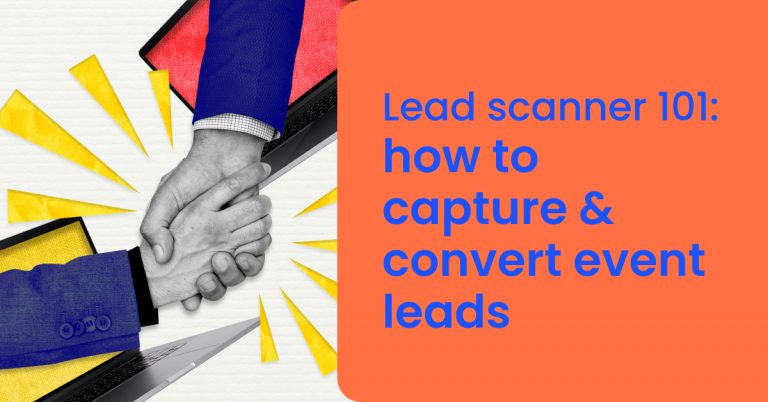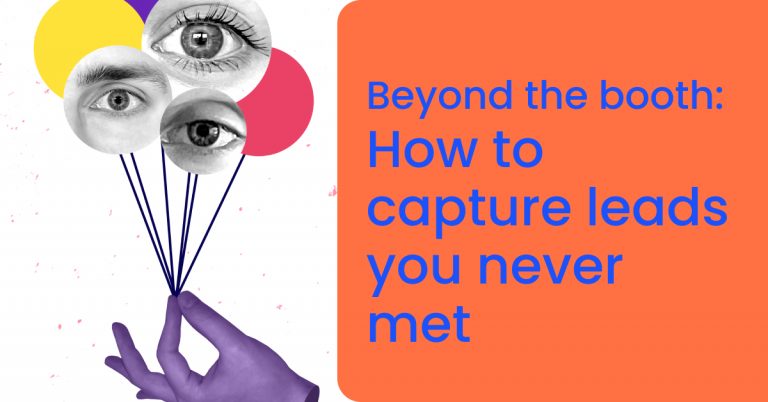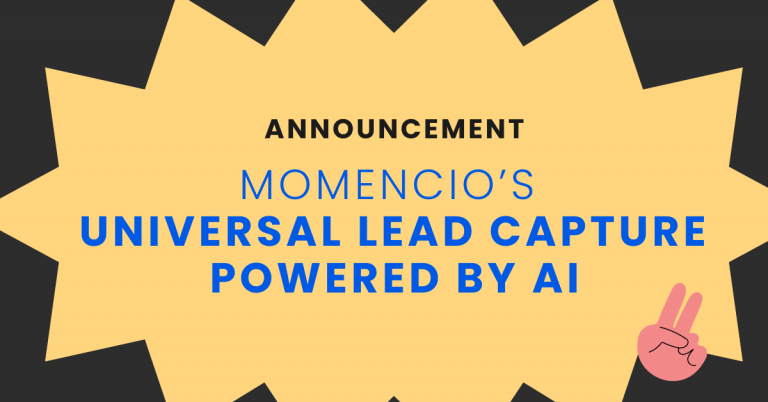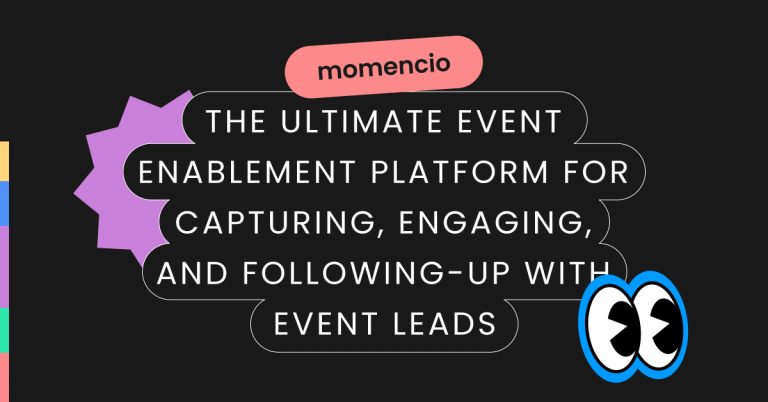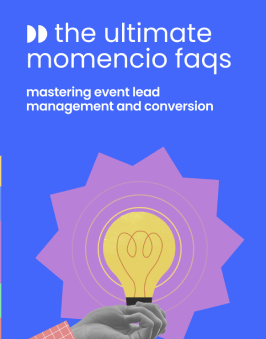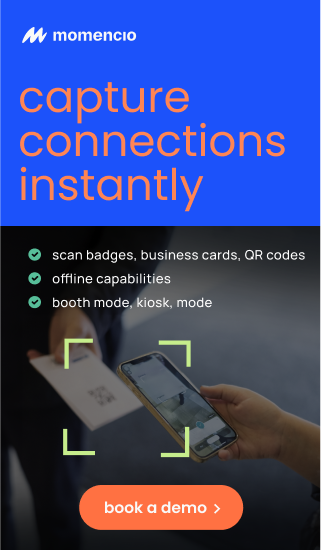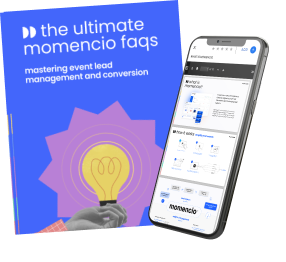Trade shows and conferences are critical venues for generating leads and engaging directly with potential customers. Yet, the efficiency of capturing and managing these leads could be more optimal. AI-powered lead capture tools are now paving the way for a transformative shift in how businesses interact with event attendees. These tools not only streamline data collection but also enhance lead qualification through sophisticated algorithms, ensuring that the most promising prospects are pursued first.
Recent advancements highlight that incorporating AI into lead management tools can increase conversion rates by up to 30%, according to a 2023 industry report (source: Event Tech Trends Report, 2023). This introduction sets the stage for exploring how AI-powered tools enhance the lead capture process at trade shows and the exciting future developments we can anticipate in this technology.
Understanding AI-Powered Lead Capture Tools
AI-powered lead capture tools are at the forefront of transforming the traditional approaches to gathering and processing information at trade shows and conferences. By leveraging artificial intelligence, these tools automate the extraction and interpretation of attendee data, turning every interaction into a potential sales opportunity.
What are AI-Powered Lead Capture Tools?
AI-powered lead capture tools utilize machine learning algorithms and data analytics to intelligently capture, sort, and analyze data collected from event attendees. This technology often encompasses several functionalities:
- Badge Scanning and Smart Data Capture: Devices or applications scan attendee badges quickly, capturing essential contact information. AI enhances this primary data by pulling in additional details from social databases and online profiles, creating richer lead profiles.
- Facial Recognition: Some sophisticated systems include facial recognition to identify returning visitors, which helps personalize the greeting and offers based on previous interactions.
- Sentiment Analysis: Through natural language processing, these tools can analyze the conversation tones and feedback provided by attendees, giving insights into their perceptions and interests.
Key AI Features in Modern Lead Capture Tools
AI features embedded within these tools are designed to maximize efficiency and effectiveness in lead handling:
- Predictive Analytics: By analyzing historical data, AI predicts which leads are most likely to convert, allowing sales teams to prioritize their follow-ups.
- Automated Segmentation: AI categorizes leads based on demographics, behavior, and engagement levels, which can dramatically improve personalized marketing efforts.
- Real-time Insights: Immediate data processing enables on-the-spot decision-making, such as sending personalized follow-up emails or notifications to sales reps about high-potential leads.
Enhancements AI Brings to the Lead Capture Process
The integration of AI into lead capture tools provides significant advantages over traditional methods, particularly in enhancing the speed and accuracy of data collection and analysis.
Real-time Data Analysis and Reporting
AI-powered tools can process vast amounts of data instantly, providing real-time insights that are crucial during fast-paced events. Event planners can receive instant feedback on what’s resonating with attendees, allowing for agile adjustments to presentations, displays, or pitches.
Automated Lead Qualification and Prioritization
One of the most significant benefits of AI is its ability to qualify leads automatically. It assesses lead quality based on interaction depth, interest level shown in products or services, and likelihood of conversion. This ensures that sales teams focus their efforts on leads that are most likely to yield returns, optimizing resource allocation.
Case Studies of AI in Action at Trade Shows (Hypothetical Examples)
To illustrate the impact of AI-powered lead capture tools, consider these hypothetical scenarios:
Hypothetical Scenario: A Tech Expo
Imagine a tech expo where a startup unveils a groundbreaking gadget. An AI-powered lead capture system at their booth not only gathers attendee information but also tracks the time they spend engaged with different displays. Post-event analysis shows a strong correlation between engagement time and purchase intent, allowing the startup to target follow-ups more effectively.
Hypothetical Scenario: A Medical Conference
At a medical conference, a pharmaceutical company uses AI to scan and interpret attendee badges, cross-referencing data with published medical research interests. The system automatically sends personalized emails with relevant drug studies and trial results to leads, increasing engagement and follow-up success rates.
The Future of AI in Trade Shows
As AI technology evolves, its applications within the trade show realm are poised to become more sophisticated and integrated. Here are some potential future developments:
- Enhanced Personalization: AI could create highly customized experiences at booths, adjusting content dynamically based on the visitor’s profile and previous interactions.
- Improved Integration: Future tools may seamlessly integrate with all major CRM systems and marketing tools, providing a unified view of customer interactions across multiple platforms.
Integrating AI-Powered Tools with Existing Systems
Integrating AI-powered lead capture tools into existing systems is a critical step for organizations looking to leverage the full power of AI to enhance their event outcomes. Seamless integration ensures that data flows efficiently between systems, improving the overall effectiveness of the sales and marketing efforts.
Compatibility and Integration with CRMs
Most modern AI-powered lead capture tools are designed to be compatible with a wide range of Customer Relationship Management (CRM) systems. This compatibility is crucial because CRMs are central to managing lead information and subsequent follow-up processes. Key aspects of this integration include:
- Data Synchronization: Automatic synchronization of captured data with CRM ensures that every piece of information collected at the event is promptly logged in the CRM system. This includes contact details, interaction notes, and engagement levels.
- Lead Scoring: AI tools analyze the behavioral data collected during the event and score leads based on their potential value. These scores can help prioritize leads directly within the CRM, ensuring that sales teams focus their efforts where they are most likely to yield results.
- Real-time Updates: Immediate updates to CRM records allow sales teams to act quickly, often even while the event is still ongoing, which can significantly increase the chances of converting prospects into customers.
Training and Adoption Among Teams
For AI-powered tools to be genuinely effective, proper training and adoption by the event and sales teams are essential. Organizations must ensure that their teams are comfortable using these tools and understand the benefits they offer. Key considerations include:
- Training Programs: Comprehensive training sessions that not only cover the operational aspects of the tools but also emphasize the strategic benefits of AI-powered lead capture.
- Change Management: Implementing new technology can be challenging, and effective change management practices are crucial to help staff adjust to and embrace new tools.
- Feedback Loops: Establishing channels for feedback on tool usage and functionality can help in fine-tuning the system and ensuring it meets the user’s needs.
Future of System Integration
Looking forward, the integration of AI-powered lead capture tools with existing systems is expected to become more intuitive and automated. Predictions for future developments include:
- Advanced AI Algorithms: Future iterations of AI tools may offer even more sophisticated algorithms that can predict buyer behavior more accurately and suggest personalized follow-up actions directly in the CRM.
- Greater Interoperability: As digital infrastructure evolves, AI tools will likely become more adaptable, supporting a broader range of systems and software and reducing the barriers to implementation.
Implementation Best Practices
To ensure successful integration and maximize the benefits of AI-powered lead capture tools, organizations should consider the following best practices:
- Choose Compatible Systems: Select tools that are known for their compatibility with existing software infrastructure, particularly CRM and marketing automation platforms.
- Pilot Testing: Conduct pilot tests to evaluate the tool’s performance and identify any potential integration issues before full-scale deployment.
- Regular Updates and Maintenance: Keep the systems updated to take advantage of the latest AI capabilities and security features.
By addressing these areas, organizations can enhance their event lead management processes, making them more efficient and effective. This not only improves the immediate outcomes of trade shows and conferences but also strengthens long-term customer relationships through better data management and personalized engagement.
FAQs
- What AI features are included in modern lead capture tools?
- AI-powered lead capture tools commonly include features such as facial recognition for attendee identification, sentiment analysis to gauge visitor mood and interest, predictive analytics for lead scoring, and automated data enrichment to supplement captured information with additional relevant data from external sources.
- How do AI-powered tools enhance the lead capture process at trade shows?
- AI-enhanced tools streamline the lead capture process by automating data entry, providing real-time insights, and enabling immediate follow-up actions. They improve the accuracy of data captured and allow for a more personalized engagement by analyzing attendee behavior and preferences on the spot. This leads to more effective lead nurturing and potentially higher conversion rates post-event.
- What future developments can we expect in AI technology for trade shows?
- Future developments in AI technology for trade shows are expected to focus on deeper personalization, predictive behavior modeling, and seamless integration with a broader range of digital marketing tools. AI might also evolve to offer more sophisticated scenario-based modeling tools that can simulate different event outcomes based on varying strategies, providing planners with powerful tools to optimize event success preemptively.
- Can AI lead capture tools integrate with other event technology, like registration systems or mobile apps?
- Yes, most AI lead capture tools are built to be interoperable with a variety of event technologies. They can typically integrate with event registration systems, mobile apps, and even digital kiosks to provide a seamless experience from registration through to lead management. This integration capability allows for a unified data collection and analysis process across all event touchpoints.
- What level of technical expertise is required to implement AI lead capture tools at trade shows?
- Implementing AI lead capture tools does not require extensive technical expertise. Most providers offer comprehensive onboarding and training programs, and the tools themselves are designed for ease of use. However, a basic understanding of data analytics and CRM systems can be beneficial in fully leveraging the capabilities of AI lead capture technology.
- How does AI improve follow-up strategies after an event?
- AI-powered tools analyze interaction data to prioritize leads based on their likelihood to convert and suggest personalized follow-up actions. This can include automated email campaigns tailored to individual interests, reminders for sales teams to reach out to high-priority leads, and suggestions for content that might appeal to specific attendees, enhancing the effectiveness of post-event marketing efforts.
- Are there examples of AI tools that can predict event ROI?
- Some advanced AI tools can simulate various event scenarios based on historical data and current market trends to forecast potential ROI. These predictive analytics tools help planners make informed decisions about budget allocation, marketing strategies, and resource management by providing a glimpse into the likely outcomes of different approaches.
- How do AI-powered lead capture tools adapt to different types of events?
- AI-powered tools are highly adaptable and can be configured to suit different event types and sizes, from large trade shows to intimate corporate gatherings. They can customize data capture methods, engagement tactics, and lead scoring parameters to match the specific context and goals of each event.
- What are the maintenance and support options for AI lead capture tools?
- Providers of AI-powered lead capture tools typically offer ongoing maintenance and support to ensure optimal performance. This includes regular software updates, access to customer service and technical support teams, and, in some cases, dedicated account managers who assist with setup, training, and troubleshooting.
Interesting Facts from Research
To further underline the impact and potential of AI-powered lead capture tools, here are some interesting facts from recent studies and industry reports:
- Increased Engagement: Events using AI-powered tools report up to a 40% increase in attendee engagement due to more relevant and personalized interactions.
- Higher Conversion Rates: Organizations that implement AI for lead capture and follow-up see, on average, a 35% improvement in their conversion rates compared to those using traditional methods.
- Cost Efficiency: AI-driven lead management can reduce the cost per lead by as much as 50% by prioritizing high-quality leads and optimizing resource allocation.
Conclusion
AI-powered lead capture tools represent a significant advancement in how trade shows and corporate events are managed. By integrating these tools, companies can not only enhance the efficiency and effectiveness of their event strategies but also gain deeper insights into attendee behavior, leading to better-informed marketing decisions and improved ROI.
Adopting such technologies requires careful consideration of existing systems, thorough training for involved teams, and an openness to evolving AI capabilities. With the right approach, the integration of AI can transform traditional event marketing efforts into a dynamic, results-driven strategy that significantly boosts lead quality and business growth.
For event planners and marketers looking to stay ahead in a competitive industry, embracing AI-powered lead-capture tools is not just an option but a necessity. If you’re ready to transform your event outcomes and maximize your ROI, consider integrating AI into your event strategies. Start by exploring comprehensive solutions like momencio, which provides end-to-end event management capabilities enhanced with the latest AI technology.
This exploration into AI-powered tools not only highlights their benefits and potential developments but also addresses common questions, providing a well-rounded view that can help event professionals make informed decisions about incorporating these advanced technologies into their strategies.
